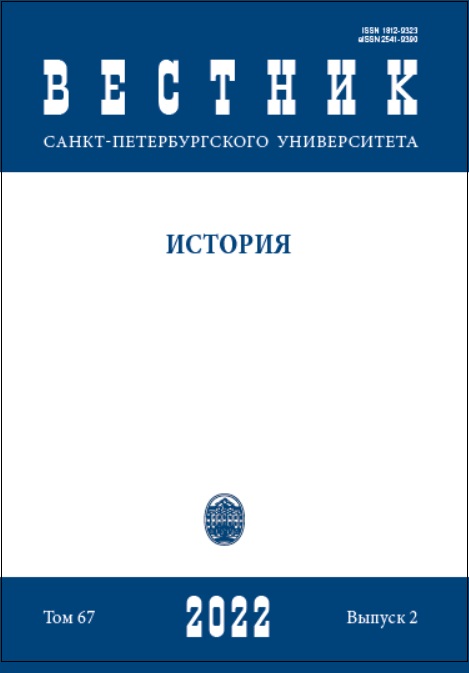Materials of the Russian Diplomatic Mission to Iran by Isleniev and Griazev
DOI:
https://doi.org/10.21638/11701/spbu02.2022.217Abstract
The study investigates the materials of the Russian ambassade S. Isleniev and M. Gryazev to the court of the Qizilbash shah Safī, stored in the funds of Russian State Archive of Ancient Acts. The archival file is a set of documents reflecting the process of the exchange of embassies between the Russian Tsardom and the Safavid Empire in 1635–1637. The aim of the embassy of S. I. Isleniev and M. K. Gryazev was to discuss some topical issues of bilateral relations such as duties, restitution cases, the purchase of Iranian niter etc. In addition, the documents describe the features of the court ceremonial in relation to foreign guests. The good preservation of the documents gives researchers the opportunity to study the ambassade at great length. As for the results of the embassy of Isleniev and Gryazev, they can be regarded as moderately positive. The high level of bilateral relations and their positive nature (“friendship and love”) were confirmed. In addition, the Safavid side once again confirmed the need to verify the membership of embassies and trade missions. On the other hand, the attempt of the tsar's ambassadors to purchase niter in the shah's possessions ended in failure. In general, the embassy of S. Isleniev and M. Gryazev was an ordinary diplomatic mission in terms of tasks and results, but this is its value for a scholar. Sustainability of the bilateral agenda and the presence of well-known “stumbling blocks” in its framework contributed to the regularity of Russian-Safavid ties.
Keywords:
Russian-Persian relations of the 17th century, Safī I, Mikhail Fyodorovich, diplomatic mission, embassy archival documents
Downloads
References
References
Downloads
Published
How to Cite
Issue
Section
License
Articles of "Vestnik of Saint Petersburg University. History" are open access distributed under the terms of the License Agreement with Saint Petersburg State University, which permits to the authors unrestricted distribution and self-archiving free of charge.





